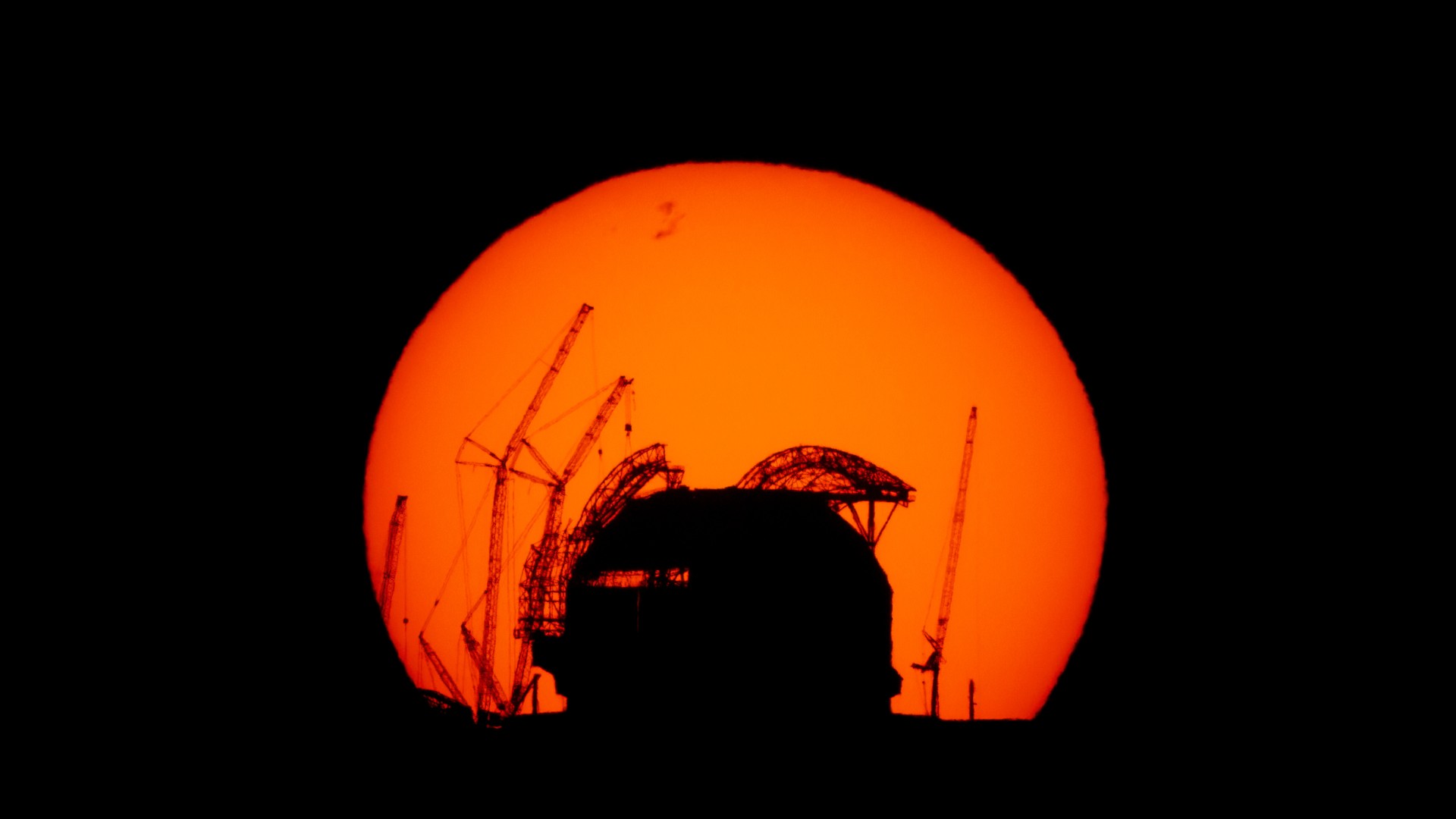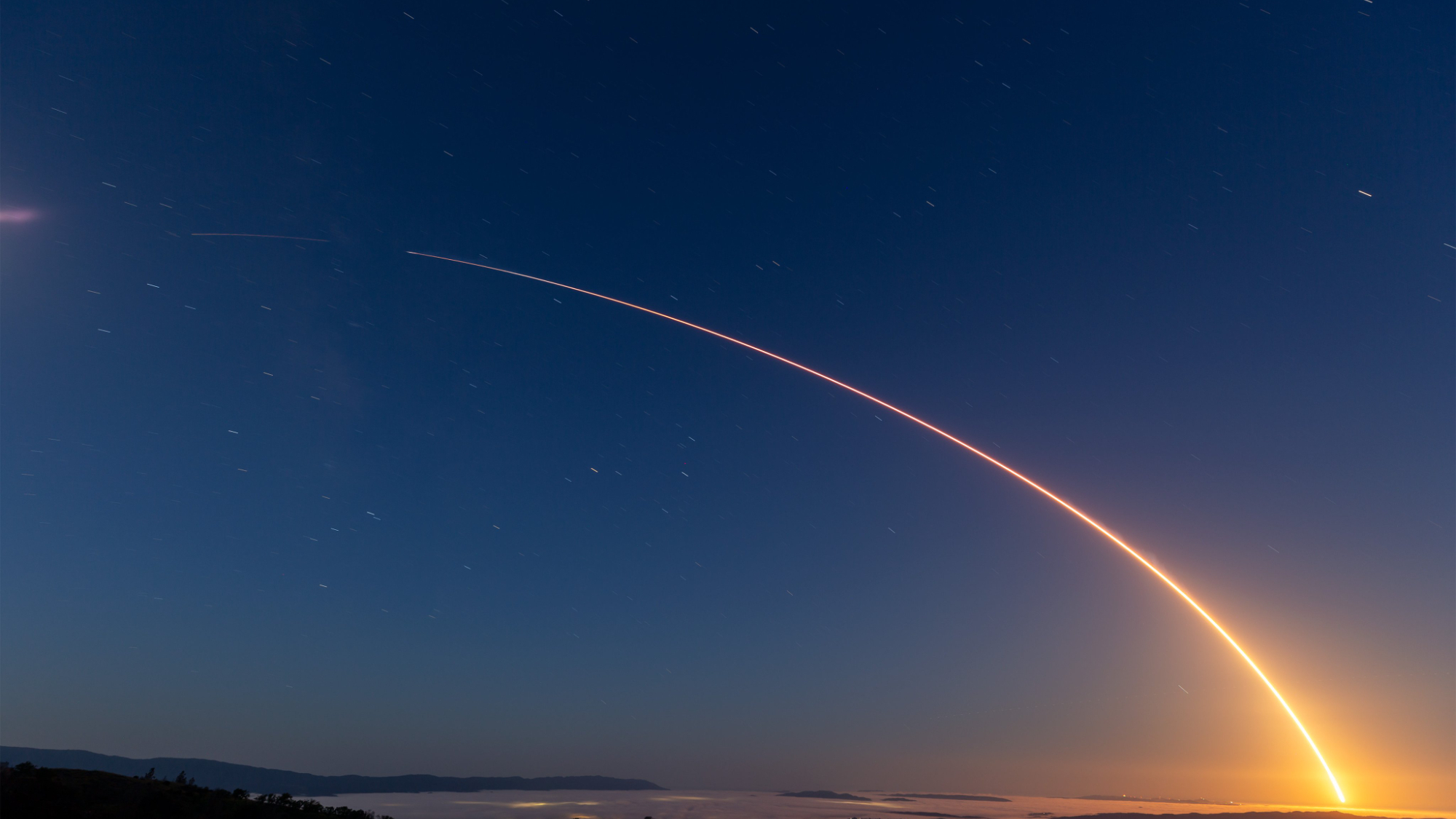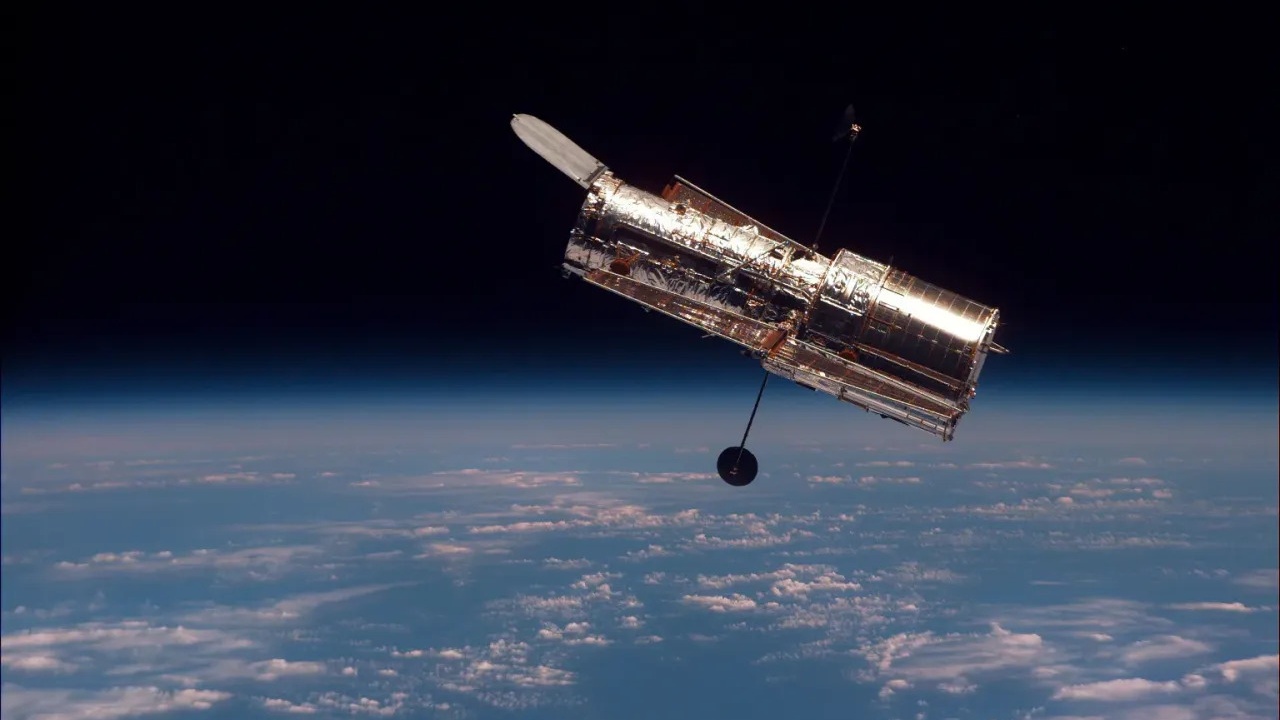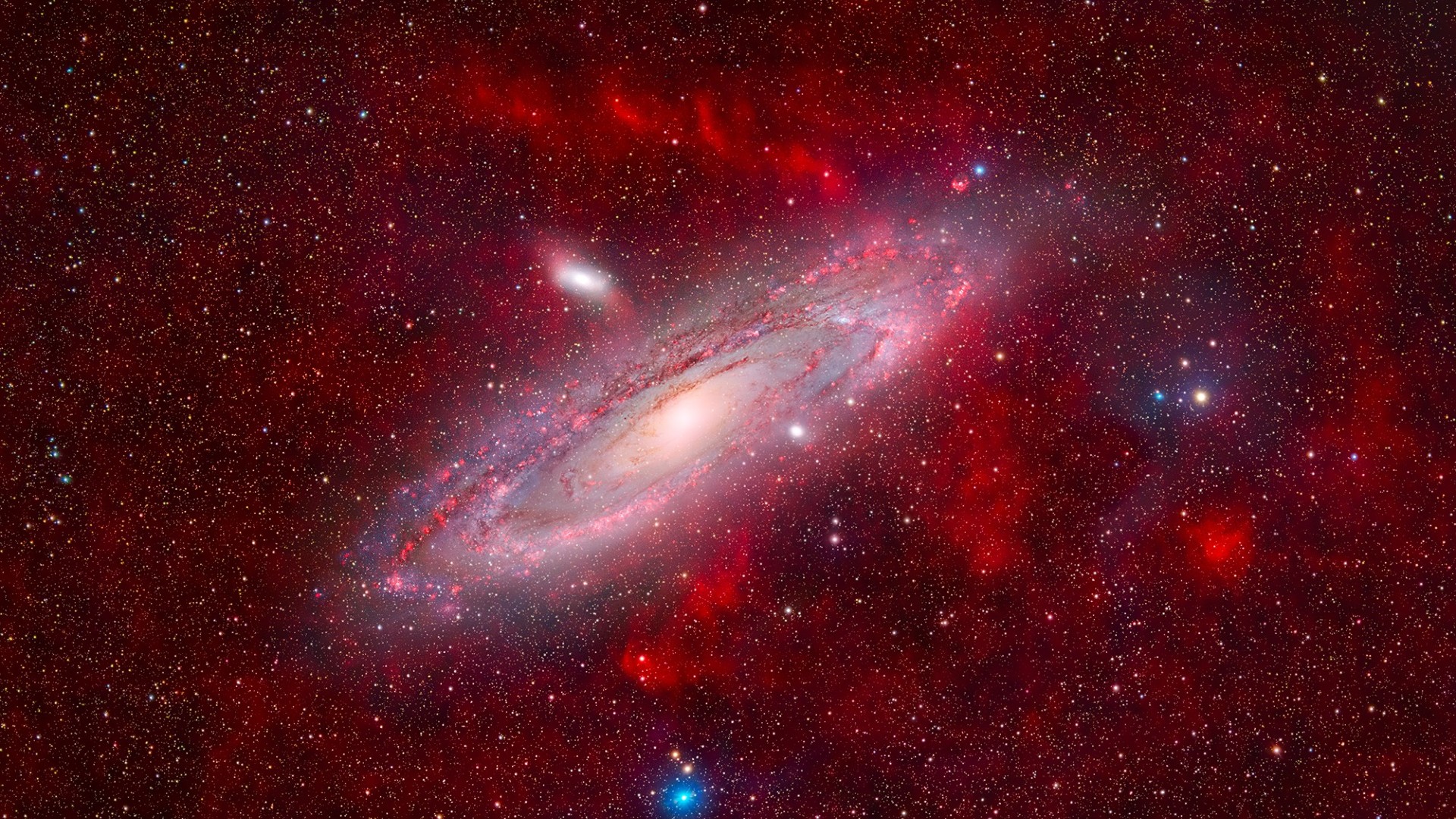Florida family files claim with NASA after ISS space junk crashes into home
The falling space junk crashed through two floors of their house.
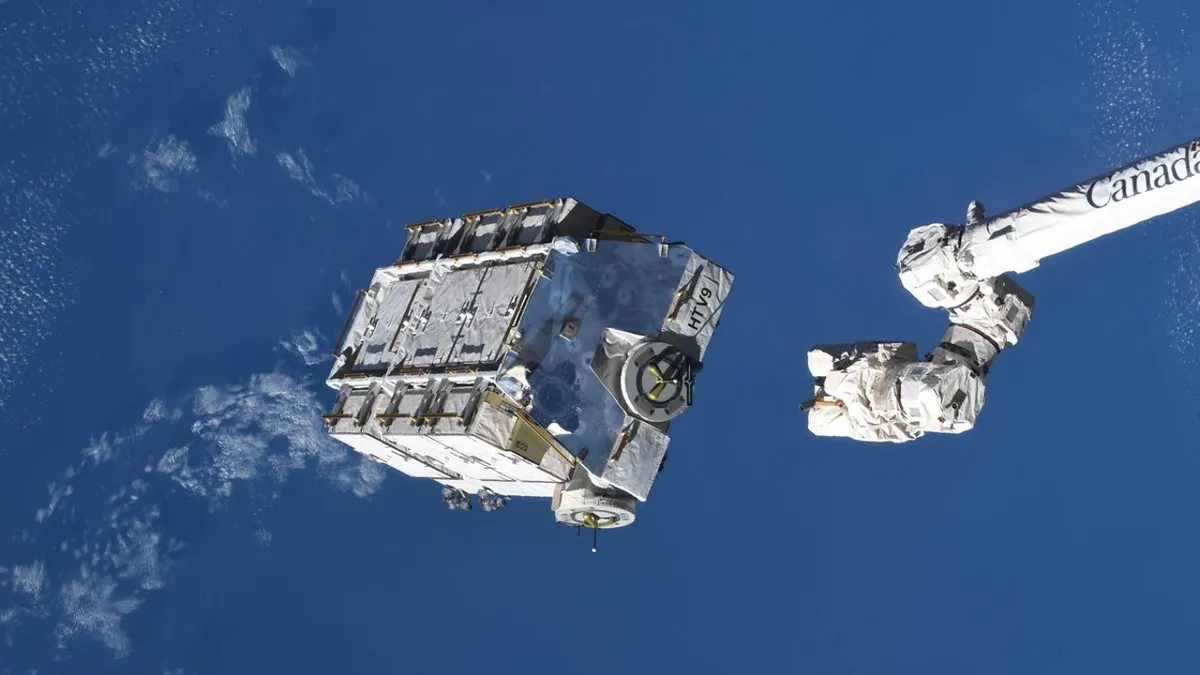
The growing problem of space debris isn't just one that plagues Earth's orbit. Several instances of space trash crashing back down to Earth have made recent headlines, and one family is requesting that NASA pay for the damages.
The space agency has a claim on its hands after a chunk of space junk crashed through Alejandro Otero's seaside home in Naples, Florida. The incident occurred on March 8, as debris tore through the roof and two floors of his family home, nearly hitting his son, Otero said in a now-deleted post on X.
NASA has since confirmed the debris came from a 2.9-ton pallet of used batteries jettisoned from the International Space Station in March of 2021; the structure was expected to burn up completely in Earth's atmosphere. Otero speculated as much in posts online following the incident, and voiced his expectation that the responsible parties be held accountable. "[The Otero family is] grateful that no one sustained physical injuries from this incident, but a 'near miss' situation such as this could have been catastrophic," said Mica Nguyen Worthy in a statement from the law firm representing the family.
In the letter, Worthy points out that, under the Space Liability Convention, NASA would be liable had the debris caused damage in another country, and thinks that policy should apply within the United States as well. "We have asked NASA not to apply a different standard towards U.S. citizens or residents, but instead to take care of the Oteros and make them whole," Worthy said.
The incident has the potential to set a precedent for governments and private space companies in terms of how compensation could be handled for victims of similar incidents in the future. Though their damage was less severe than that caused at the Otero home, several other reports of crashing space debris have occurred in the past year as well, including portions of a SpaceX Dragon trunk found in Canada and North Carolina, and a piece of an Indian Space Research Organization (ISRO) rocket landing on a beach in Australia.
"Here, the U.S. government, through NASA, has an opportunity to set the standard or 'set a precedent' as to what responsible, safe, and sustainable space operations ought to look like. If NASA were to take the position that the Oteros' claims should be paid in full, it would send a strong signal to both other governments and private industries that such victims should be compensated regardless of fault," Worthy said.
Get the Space.com Newsletter
Breaking space news, the latest updates on rocket launches, skywatching events and more!
Editor's note: This story was updated at 3:15 p.m. ET to clarify that the Florida family has filed a claim with NASA about the space junk incident. The original version said that NASA was being sued, which is not correct.
Join our Space Forums to keep talking space on the latest missions, night sky and more! And if you have a news tip, correction or comment, let us know at: community@space.com.

Josh Dinner is the Staff Writer for Spaceflight at Space.com. He is a writer and photographer with a passion for science and space exploration, and has been working the space beat since 2016. Josh has covered the evolution of NASA's commercial spaceflight partnerships and crewed missions from the Space Coast, as well as NASA science missions and more. He also enjoys building 1:144-scale model rockets and human-flown spacecraft. Find some of Josh's launch photography on Instagram and his website, and follow him on X, where he mostly posts in haiku.
-
Mergatroid So what happens if someone dies? Is it not time to update rules and laws regarding space garbage?Reply
If someone dies, "oops,we thought it would burn up" just isn't good enough. These things should only be thrown overboard if they have strict calculations showing they will land in the ocean if they don't bun up. If they cannot make this guarantee, then it's high time they stopped disposing of hardware in this fashion. I don't think anyone on this planet agreed to live with the threat of this stuff falling on them. -
COLGeek Reply
I hear you. What about some other object from space, like a meteorite? Theoretically possible.Mergatroid said:So what happens if someone dies? Is it not time to update rules and laws regarding space garbage?
If someone dies, "oops,we thought it would burn up" just isn't good enough. These things should only be thrown overboard if they have strict calculations showing they will land in the ocean if they don't bun up. If they cannot make this guarantee, then it's high time they stopped disposing of hardware in this fashion. I don't think anyone on this planet agreed to live with the threat of this stuff falling on them.
International conventions to work this would be key to making useful. Lots of stuff from lots of nations floating about in orbit. -
Cisventure Astronot ReplyMergatroid said:So what happens if someone dies? Is it not time to update rules and laws regarding space garbage?
If someone dies, "oops,we thought it would burn up" just isn't good enough. These things should only be thrown overboard if they have strict calculations showing they will land in the ocean if they don't bun up. If they cannot make this guarantee, then it's high time they stopped disposing of hardware in this fashion. I don't think anyone on this planet agreed to live with the threat of this stuff falling on them.
I agree. But, to be fair, they probably had "strict calculations showing they will" burn up completely in Earth's atmosphere.
I hope that the Otero family is compensated for this otherwise-crippling disaster. -
Coinneach https://www.space.com/electromagnetic-launch-moon-mass-drive?utm_term=B6FBBE8E-5653-4DCD-8C09-A4824E39CB2A&lrh=edad7d5ab3d447adafaf2c24c3870fae82114f2261f9d2294d21753d99231c9c&utm_campaign=58E4DE65-C57F-4CD3-9A5A-609994E2C5A9&utm_medium=email&utm_content=C027802A-872A-4D9F-A7E3-EB5073277D31&utm_source=SmartBriefReply
Looks as if we'll soon have mining containers from the moon raining down on us too -
Unclear Engineer It seems silly that this family would need to hire a lawyer and sue NASA. NASA has admitted that it is a piece of there trash that they intentionally jettisoned to reenter the atmosphere. There needs to be a compensation fund for damages that are indisputably caused by NASA.Reply -
Classical Motion It's in the returned cargo and experiments. The trash can be left in the service module to burn up, or can be brought back down with capsule. In all likelihood they label and screen feces. Urine is recycled. Disposables are brought back or burned up on re-entry.Reply
I'm not an expert but there are many articles and reports about this thru the years. And it's probably under constant review and updated.
But I don't believe they litter. They have to dodge litter every once in a while. -
Unclear Engineer In the case of this particular debris, I don't think a cargo ship was involved in the reentry. I think it was just a pallet of used batteries that was literally shoved away from the station by the robotic arm, in the retrograde direction. See https://spaceflightnow.com/2021/03/12/garbage-pallet-jettisoned-from-space-station-will-stay-in-orbit-two-to-four-years/ .Reply




